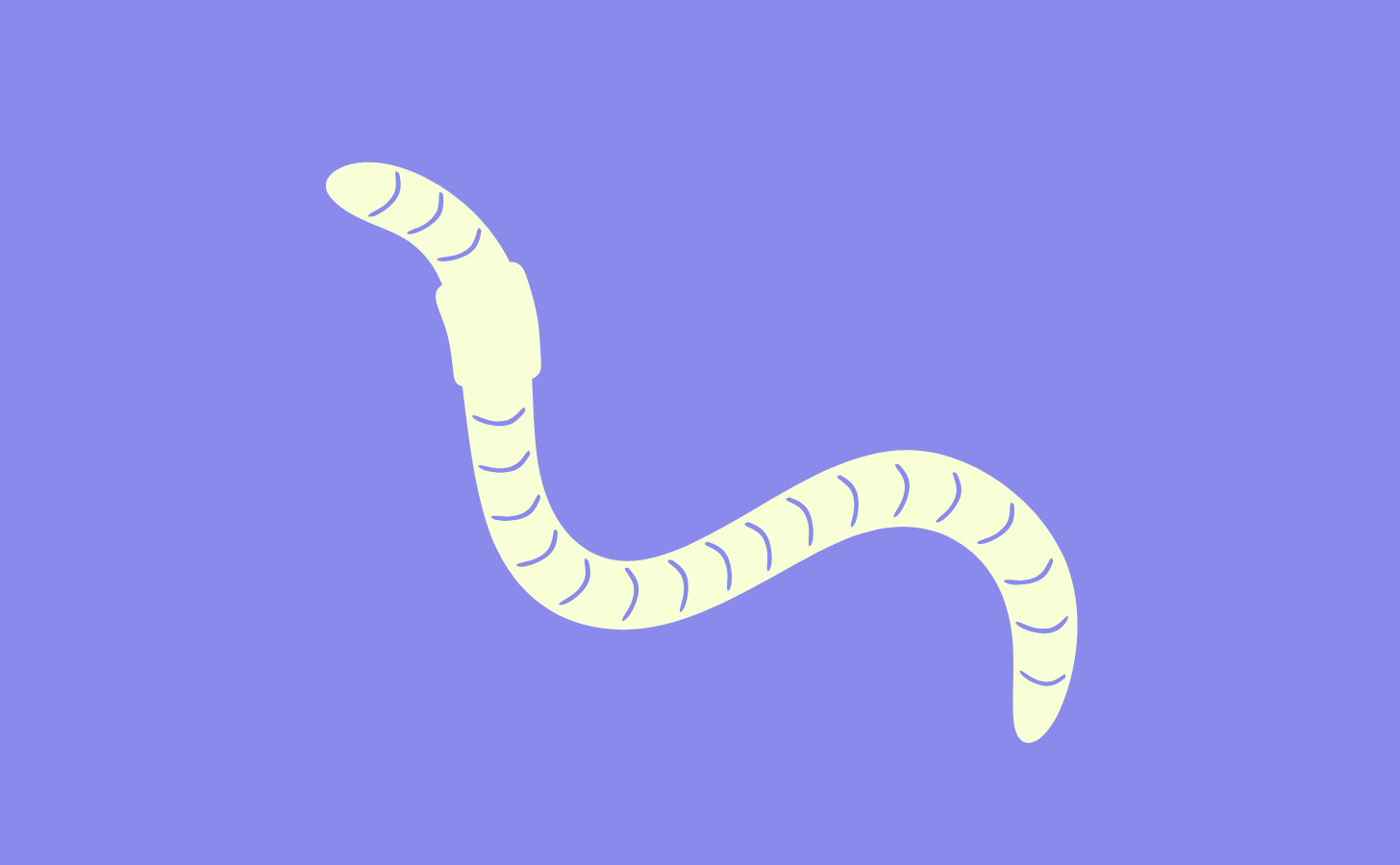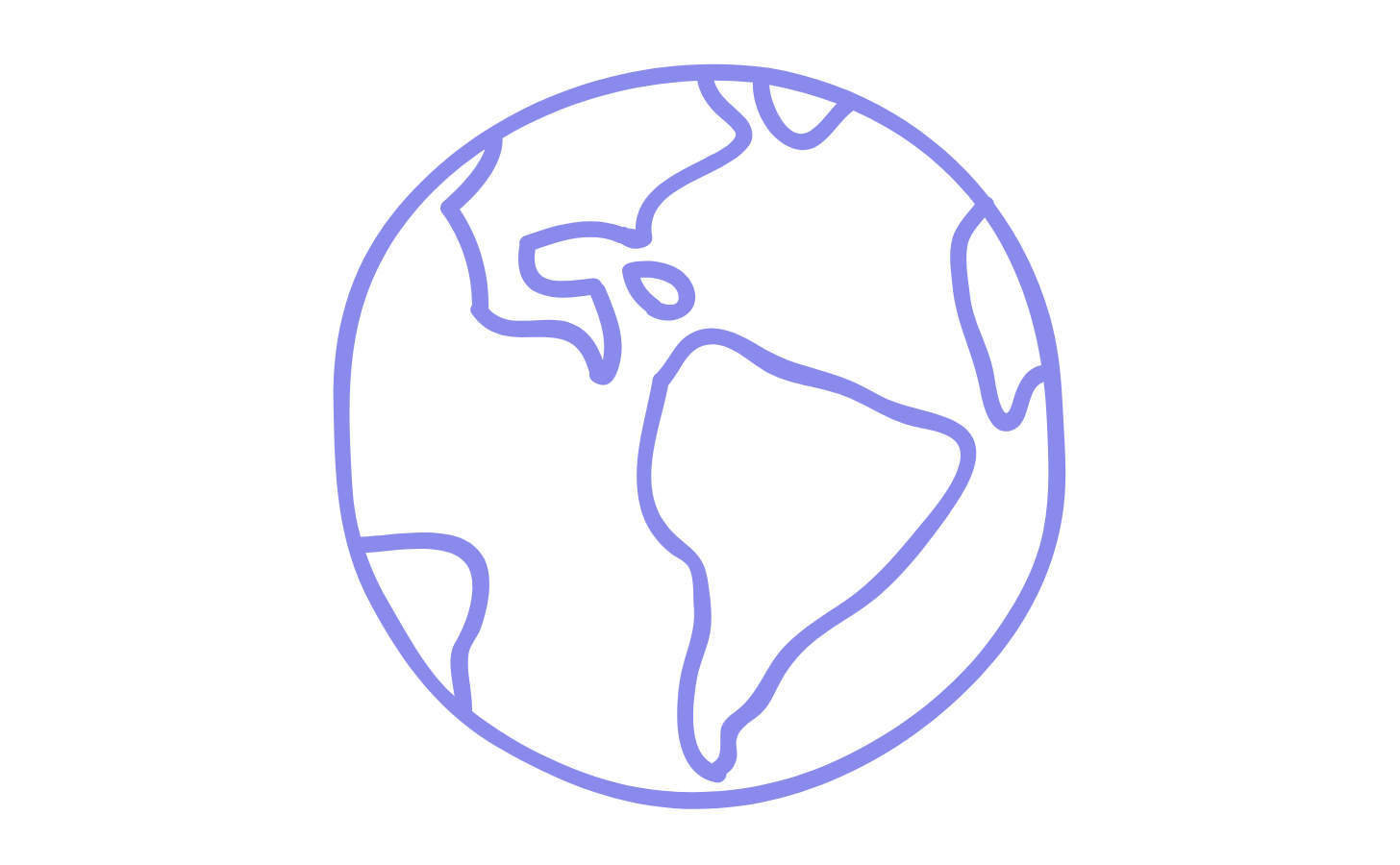All "I'm too small to make a difference" thinking is cancelled
We are all earthworms—which means we're all capable of changing the world.
I never thought I’d find camaraderie with a worm.
They’re in my garden, sure—happily munching on a bunch of cores from my ongoing gala apple obsession—and I appreciate their supporting role in my meager attempt to grow a few heads of lettuce. But I never thought I’d look at one of those slimy little guys and go, Huh. I’m just like them. Not until I read Ferris Jabr’s Becoming Earth, that is.
Jabr’s book is all about “how our planet came to life,” or more specifically, how it transformed from an inactive space rock to the bustling yet precarious biological hub it is today. In his second chapter, Jabr explains how Western scientists once doubted that non-human animals could influence their environment. After all, animals collectively make up less than half a percent of Earth’s total biomass; surely these creatures, especially individually or on a per-ecosystem basis, couldn’t effect much change on their surroundings. Instead, even those in the scientific community thought nature’s workings were preordained, usually by some divine entity or another equally mysterious force.
In 1881, Charles Darwin published what would be his final work: The Formation of Vegetable Mould, Through the Action of Worms. Despite its dry (and slightly off-putting) mouthful of a title, this 340-page manuscript lovingly describes how earthworms alter the ground in which they live. All of their wriggling and munching, Darwin points out, tills the earth to the point of transforming our planet’s outermost layer, or crust. Earthworms, tiny as they are, have Earth’s composition in the palms of their nonexistent little hands.
When the manuscript was published, Darwin’s peers laughed him off. But then his earthworm manifesto became a commercial success. The idea that something as small as an earthworm could have such a significant impact on the planet fascinated both naturalists and casual readers. Today, we know that Darwin was right: earthworms, along with pretty much every other living creature, have the power to transform their environments—and often the world—by simply living their lives in a specific way.
This is all a metaphor, of course.
As a creative, an activist, and a person with clinical depression (the last of which leaves me especially susceptible to despair), I have spent a lot of time wondering how much change-effecting power I, an individual, have. What is the point of creating a work that conveys hope if I am just one person, and few people might read it? What is the point of signing and sharing a petition if 300,000 more signatures are needed? What is the point of trying to make the world a better place when so many people, whether incidentally or on purpose, are actively making it worse?
Some days, I choose to do and believe in good out of spite. I’ve spent too much of my life feeling miserably hopeless; I’m not going to let a Republican or a selfish father or a prick with road rage doom any more of my precious time. (I’ll admit that spite has powered much of my hopeful thinking over the past *checks calendar* 38 days.) Other times, and now more than ever before, I’m able to recognize that doing and believing in good—what one might call “practicing good”—is just as impactful as doing and believing in exploitation, extraction, and other forms of harm.
This is not the prevailing school of thought. Right now, the world is rife with discouraged and often apocalyptic thinking: The rich control everything, so who cares or The planet’s dying and we’ll all be gone in 100 years anyway. Though this train of thought is understandable, it also conveniently absolves the individual of responsibility. It teaches the individual to think: What difference can I make, anyway? None? I won’t bother, then.
This type of thinking perpetuates the cycle of harm by maintaining the very status quo that frustrates and endangers so many of us. Exhibit A: climate change.
Research has found that among those who don’t take action to mitigate climate change, whether by altering their personal choices (e.g. transportation) or activism (e.g. pushing for environmental regulations), climate change deniers are no longer in the majority. Instead, it’s largely people who think it’s too late to do anything about climate change who refuse to act, even in small ways. Meanwhile, those at the top—oil companies and airlines and automakers and so on—benefit from their inaction.
What would happen if everyone with this degree of climate despair did make a conscious choice in Earth’s favor? What if they each carpooled with a coworker to take one more car off the road, or advocated for some of the planet’s most endangered carbon sinks, or protested the installation of a dangerous pipeline, or joined a tree-planting committee? No, Earth might not instantly heal—but would it become easier to course-correct?
In the chapter of Becoming Earth I mentioned above, Jabr introduces Sergey Zimov, a Russian geophysicist and arctic conservationist who co-founded Pleistocene Park. The park, a 35,000-acre preserve in northern Siberia, aims to protect the region’s permafrost and restore as much of its grazing ecosystem as possible. Much of Zimov’s work involves reintroducing grazing animals—reindeer, Yakutian horses, bison, musk oxen, Kalmyk cattle, and so on—in order to mimic the long-lost mammoth steppe. This is all in service of Earth’s larger climate, which relies on permafrost, grass, and other elements of a healthy Siberian ecosystem to deal with the vast amounts of carbon dioxide we pump into our atmosphere.
Zimov’s work is as hard as it sounds, and though a lot of people believe in his mission, a good deal of those so-called believers shower him with doubt. As Jabr quotes Zimov in Becoming Earth:
“Some people do not believe the park is possible…. ‘It’s too much effort. Climate change is already here. You will not make it in time.’ And so on and so forth. Maybe they are right. But the thing is, if I don’t do anything, nothing will happen. Unless we are doing something about it—not just writing or yelling about it, not just shouting that, oh, we are all going to die—but actually, practically doing something, nothing will happen.”
Here, Zimov efficiently encapsulates yet another issue with doomsaying: by giving up on practicing good, you’re denying yourself, your community, and your planet the opportunity to experience a positive outcome. If you practice good, there’s at least a chance that your unhoused neighbor will end up back on their feet, or that your city will expand its accommodations for disabled folks, or that our most valuable cornerstone species won’t go extinct. But by sitting on your ass and complaining instead of acting, you’re guaranteeing a negative outcome—or, just as ugly, you’re admitting that the hard work isn’t yours to do.
To be clear, some people, organizations, and practices are far guiltier of committing harm than any individual can be responsible for doing good. It is largely oil companies’ fault that our planet is surrounded by a bubble of greenhouse gases. The health insurance lobby is responsible for the United States’ lack of useful and equitable healthcare coverage. Greedy landlords are the ones kicking people out of their homes. But they don’t deserve the convenience of our inaction. Plus, these forces were not given their power overnight. It’s deeply unfair and incorrect to accept that small acts of harm add up to a dangerous whole but that small acts of kindness, consciousness, and harm reduction don’t add up to a helpful one.
Like earthworms, we are each very small, but we have the power to move mountains. As it did in 1881, that idea might feel laughable to those unfamiliar with its promise. But what do we have to lose? Worst-case scenario, we’ll at least know that we did our best to create the kind, safe, and equitable world we deserve. On the other hand, maybe we’ll begin to see the earth shift around us.
What’s been inspiring me lately:
✰ Inciting Joy by Ross Gay. I really loved Gay’s The Book of Delights (and its sequel), and this follow-up didn’t disappoint. If this issue of Creativity Under Capitalism resonated with you, I highly recommend reading Inciting Joy; it offers a beautiful response to the question, “How can joy reconcile with all the world’s suffering and grief?”
✰ Metamorphosis: Climate Fiction for a Better Future, an anthology of hopeful, multicultural climate fiction.
✰ A visit to the Martin Luther King, Jr. memorial my family made in Washington, DC two weeks ago. The memorial was surrounded by MLK Jr. quotes etched in stone, one of which I’m clinging to pretty hard right now: “I believe that unarmed truth and unconditional love will have the final word in reality. This is why right, temporarily defeated, is stronger than evil triumphant.”







Really appreciate the phrasing “the convenience of our inaction.” Thanks for this great newsletter!
This was great! I've been encouraged by how this type of thinking is becoming more common. Instead of only focusing on individual effort or structural change, we do both because it's all necessary and all interconnected.